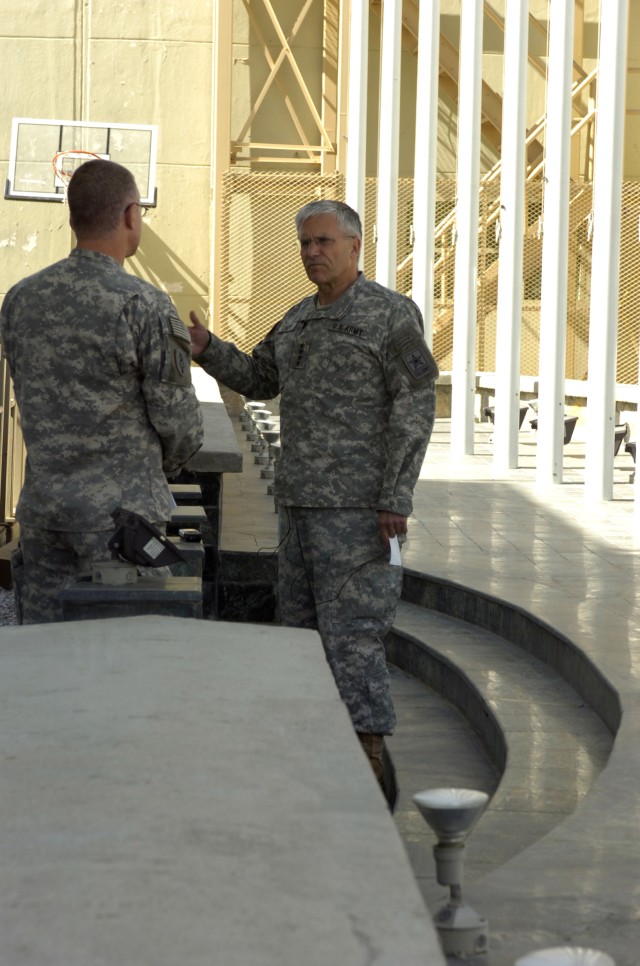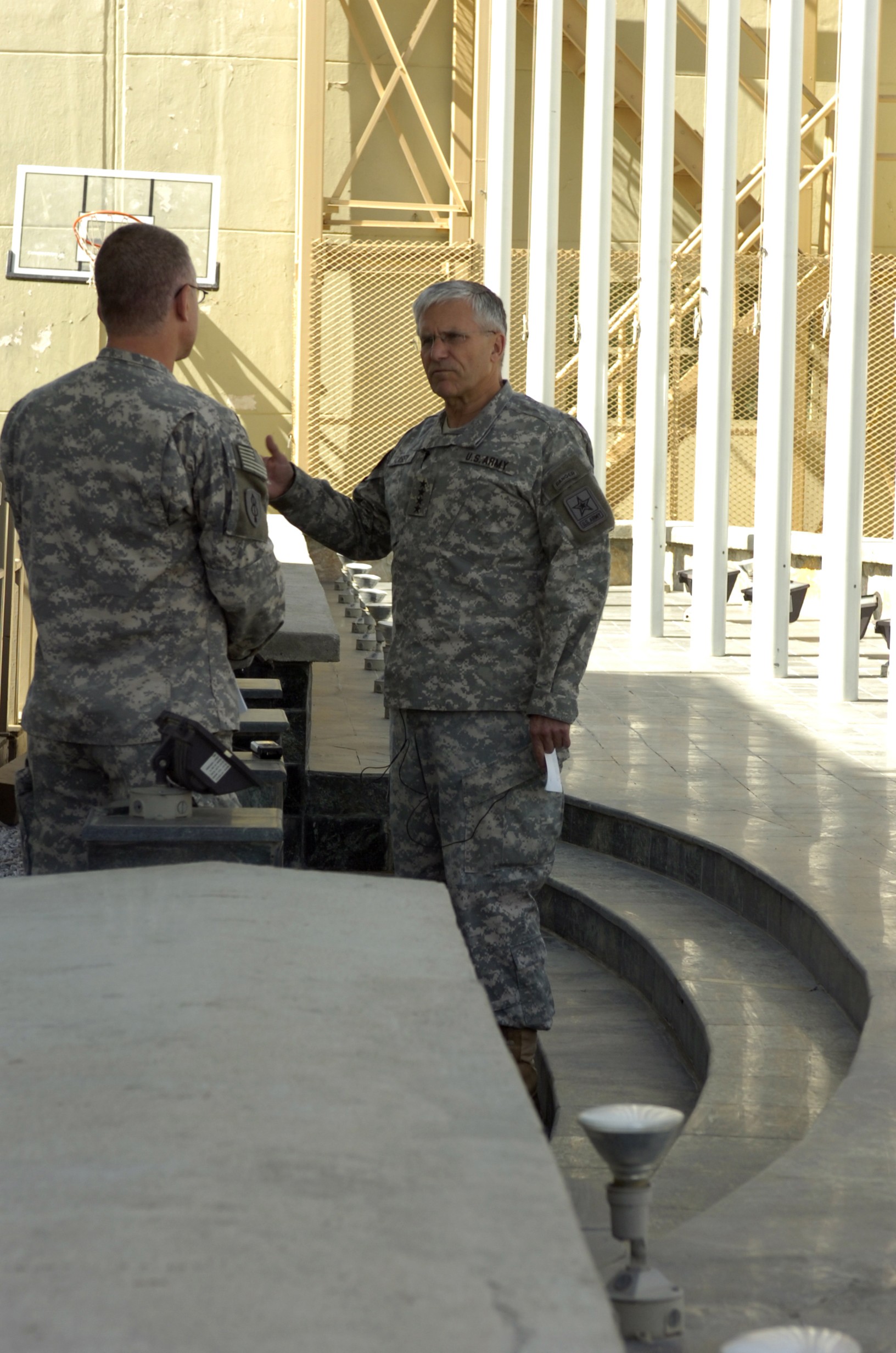BAGRAM AIRFIELD, Afghanistan, (Army News Service) -- Army Chief of Staff Gen. George W. Casey Jr. visited Afghanistan last month for the third time in the past year and spoke on several issues affecting Soldiers.
The chief of staff said he tries to periodically visit each of the theaters (Iraq and Afghanistan) to get a sense of how Soldiers are doing and if they have the equipment and training needed for mission success.
"There's a great sense of energy here," said Casey. "When I was here in December I saw a little apprehension."
The improvement in outlook was attributable, he felt, to the additional troops who have arrived in Afghanistan recently. The Soldiers on the way have also placed Coalition Forces in a much better position as the 101st Airborne Division prepares to hand responsibility to the 82nd Airborne Division, he said.
The Army has been working hard to meet the higher manpower totals that were envisioned several years ago. Casey said he had long been concerned about stretching the Army so thin that it would be unable to accomplish present and future missions.
"We were out of balance," said Casey, noting the original goal was to grow the force to its desired level by the end of 2011. "We have reached our 547,000 in the active force" two years ahead of schedule, he said, with the biggest impact for Soldiers being that future burdens of frequent deployments may be lessened.
"The most important thing we can do to get ourselves back in balance is to increase the amount of time Soldiers spend at home between deployments," Casey said.
Dwell time lengths have yet to be decided, but once demand comes down, deployments can hopefully be shortened as well, he added. Families left behind, as well as returned-to after lengthy deployments, continue to occupy the thoughts of Casey and other Army officials.
"Our Soldiers draw their strength from their families," said Casey. The Army spent $1.4 billion on family support in 2008 and is expected to continue investing in such programs.
"We are committed on delivering on the Army Family Covenant," said Casey, alluding to the Army's efforts to fund and support family programs, physical and mental healthcare, housing, education and childcare and employment opportunities for spouses.
These large efforts on behalf of families are in conjunction with a new initiative Casey referred to as "Comprehensive Soldier Fitness." CSF is designed to put mental fitness on the same level of physical fitness.
"You can build mental resilience and enhance Soldier performance," he added. The sooner Soldiers are willing to come forward and get treatment for problems, the sooner they can be helped.
Most importantly, Casey said, "No Soldier stands alone" if treatment is needed. Casey proudly noted that recent travels to other countries have seen many favorable comments directed toward the professionalism and competence of the NCO Corps of the Army.
Those comments have contributed to Casey and Sgt. Maj. of the Army Kenneth O. Preston proclaiming 2009 as the "Year of the NCO."
"We haven't done this in 20 years," Casey said, and cited three reasons for making the proclamation. It was important to recognize NCOs, inform Congress and people what an asset NCOs are, and enhance the skills of our NCOs and give them necessary tools for future success, he added.
The changes in deployments and theaters of operation for certain Army units have begun, Casey confirmed, and he sees encouraging signs.
One positive aspect is that Afghanistan has the troops needed to ensure that there are safe elections this August," Casey said.
Casey said if he could provide a single piece of advice to Soldiers returning to families and their former lives, he would cut to the chase quickly.
"Take some time to relax and build yourself back up gradually," he said.


Social Sharing